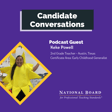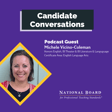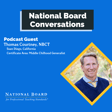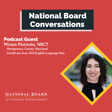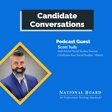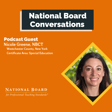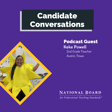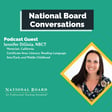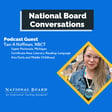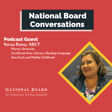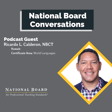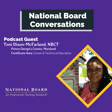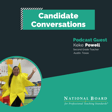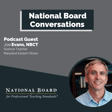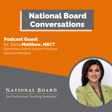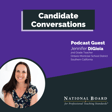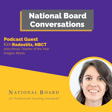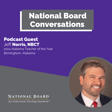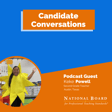
Katie McClain - High School Video Production - Clark County, Nevada
Katie McClain is a seasoned educator with six years of dedicated service in the esteemed Clark County School District, specializing in high school video production. She embraces the dynamic intersection of creativity and technology within the educational landscape, guiding my students through the intricacies of multimedia storytelling. She is a Career and Technical Education National Board candidate.
In this episode of National Board Conversations, she talks about her journey to this point and gets into the intricacies of how she has been able to weave her first career in broadcast journalism with becoming a teacher on her way to achieving National Board Certification.
Twitter: @NBPTS
Instagram: @NBPTS
Facebook: The National Board for Professional Teaching Standards
